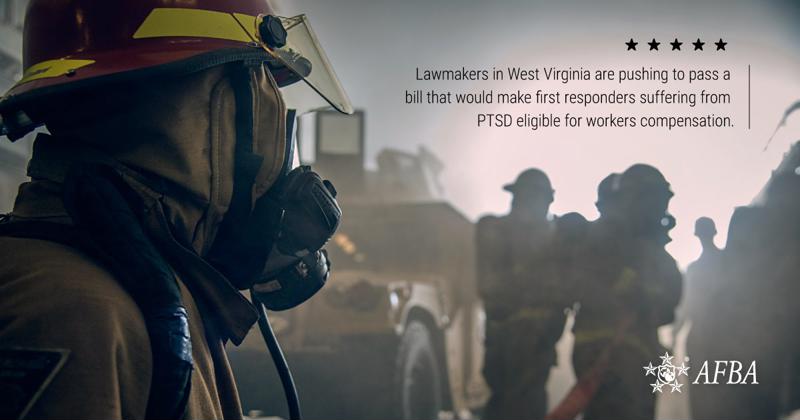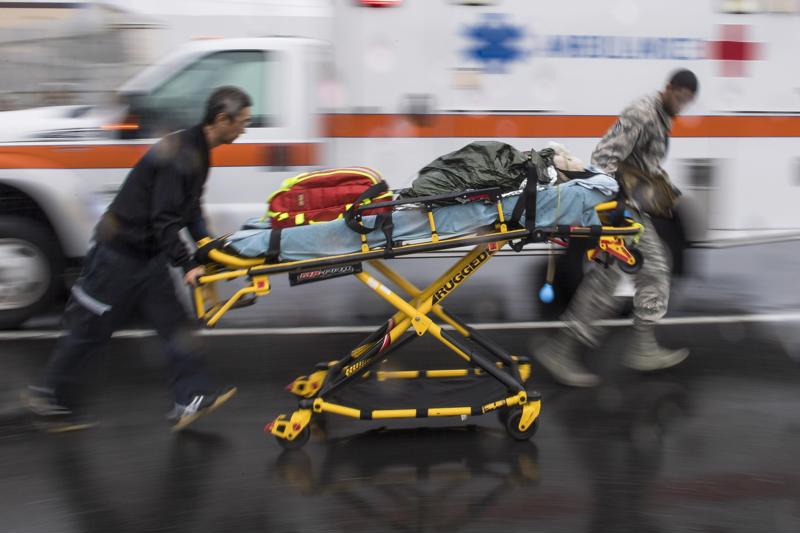First responders put their lives on the line, rushing into dangerous fires, accidents, emergencies and natural disasters before anyone else.
Yet the immense physical risks involved in being a first responder are in many cases less severe than the danger of psychological scarring.
An alarming report commissioned by the Ruderman Family Foundation recently revealed that first responders are more likely to die by suicide than in the line of duty, according to WGN.
The study found that the mental health effects of experiencing or witnessing trauma, grisly accidents, shootings and more has led to a rate of PTSD and depression for police and firefighters that is five times higher than the civilian population.
It's a disturbing national trend, and one that will be difficult to eradicate, but at least one state is seeking a legislative cure for the problem.

West Virginia legislators trying to provide workers comp to first responders with PTSD
Lawmakers in West Virginia are pushing to pass a bill that would make first responders suffering from PTSD eligible for workers compensation.
The issue is sadly relevant to Bob Coleman, a retired firefighter who lost his son, Chris, to suicide last year. At the time of Chris' death, he was following in his father's footsteps as a first responder with the Huntington Fire Department.
"We hope that no other family has to go what we went through," Coleman told WOWK. "A physical injury is compensatable but a mental injury should be, too. Us first responders…. firefighter, EMS, police… we see things that we can't unsee."
That sentiment was echoed by Ceredo Fire Chief Dave Caudill, who spoke with WVAH about the stressful situations first responders deal with constantly, and the corresponding mental toll.
"Everybody can't do first responder work because you see a lot of stuff that really you shouldn't have to see," Caudill told the local news outlet. "I've actually seen situations over the years where you have somebody who's never really dealt with that before get into that situation and… that's the end of their career."
Such occurrences could be higher than the average person might suspect: A study conducted by the University of Phoenix found that 85 percent of all first responders deal with some sort of mental illness at some point during their career.
Bills introduced in both House and Senate
The effort to better care for the mental wellbeing of first responders appears to have the support of many local lawmakers, as legislators in both the House and the Senate have introduced bills that would provide worker compensation to first responders diagnosed with PTSD.
"This is a life or death issue," Cabell County Delegate Chad Lovejoy, who sponsored the House's version of the bill, told WOWK. "We have men and women whose lives are being taken, sometimes at their own hands, sometimes by coping mechanics. This is not a small undertaking, but this could really save some lives."
According to the language of the legislation, a first responder would need to be diagnosed with PTSD by a licensed psychiatrist, and the traumatic incident must have occurred on the job.
Although a similar bill was unsuccessfully introduced last session, Lovejoy remains optimistic that this new attempt will have a different result.
"More people have come on board," Lovejoy said. "I think we have seen the trend here and more people recognize how big of a problem this actually is."


